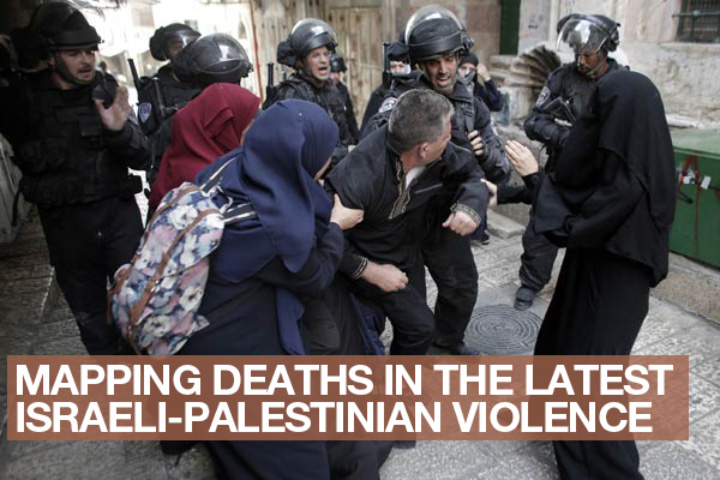Israel to widen police stop-and-frisk powers
Israel moves to allow police to search anyone on the street, as four cities ban Arab labourers from working in schools.

Israel has imposed more security measures after new attacks in the occupied Palestinian territories, widening police stop-and-frisk powers that will effectively allow them to search anyone on the street.
The Ministry of Public Security on Sunday said the government approved a bill that would enable the police to conduct physical searches on people, even if there were no indications that they were carrying arms.
Keep reading
list of 4 itemsFrance blames Azerbaijan for New Caledonia violence: Unpacking their spat
‘Hell on Earth’ as violence escalates in Sudan’s el-Fasher
South Korean military says North Korea test-fired ‘ballistic missiles’
The bill still requires parliament’s approval.
The announcement came amid a wave of violence in Israel, occupied East Jerusalem, and the occupied West Bank, that began early October.
OPINION: It’s time to challenge the status quo in Palestine
Current Israeli legislation only allows searches on suspicion that a person is armed.
Gilad Erdan, the minister of public security, said the new measure was passed to deal better with the “terror of knives”.
Rights groups have condemned recent Israeli security measures, which Majd Kayyal from Adalah, a Palestinian legal centre in Israel, said aim to expand the powers of the police without any legal restrictions.

Just days ago, the security cabinet passed a law to allow security forces to besiege Palestinian villages, impose curfews and restrict the movement of Palestinians – measures Kayyal described as “collective punishment”.
Kayyal also condemned pre-emptive arrests, whereby Israeli police are arresting people before their participation in protests or riots.
“These measures put the police above the law,” he told Al Jazeera.
Arab labourers banned from schools
In addition to the approval of random searches, at least four Israeli cities, including the commercial hub Tel Aviv, on Sunday banned Arab labourers from schools when students are present.
Kayyal and the Joint Arab List, a party representing the country’s Arab minority, condemned the decision as racist.
A spokeswoman for the Tel Aviv municipality confirmed the measure to the AFP news agency, saying it applied to “both Jewish and Arab” workers and was taken due to the “sensitive situation”.
However, public radio said the majority of such workers are Palestinian Israelis.
RELATED: Bringing into question Israel’s extrajudicial killings
The cities of Rehovot and Hod HaSharon also avoided using the word “Arab” in announcing on their websites and in emails to residents that maintenance workers and cleaners – many of whom are Arabs – would not be allowed into schools.
Another city, Modi’in-Maccabim-Re’ut, midway between Tel Aviv and Jerusalem, announced that “minority members” – a term Jews in Israel often use for Arab citizens who make up 20 percent of the population of eight million – would be banned from working in its schools.

At least 44 Palestinians have been killed since October 1, most of them by security forces in clashes or in shootings following alleged stabbing attempts. Eight Israelis have been killed in stabbing and shooting attacks.
The violence has been triggered in part by recent visits by Jewish groups to the Al-Aqsa Mosque compound in occupied East Jerusalem, coupled with Israeli restrictions on Palestinian access to the mosque, one of Islam’s holiest sites.
Prime Minister Benjamin Netanyahu, in public remarks on Sunday to his cabinet, said: “We are preserving the status quo; we will continue to do so,” referring to the Al-Aqsa complex, which is also revered by Jews as the location of two destroyed biblical temples.